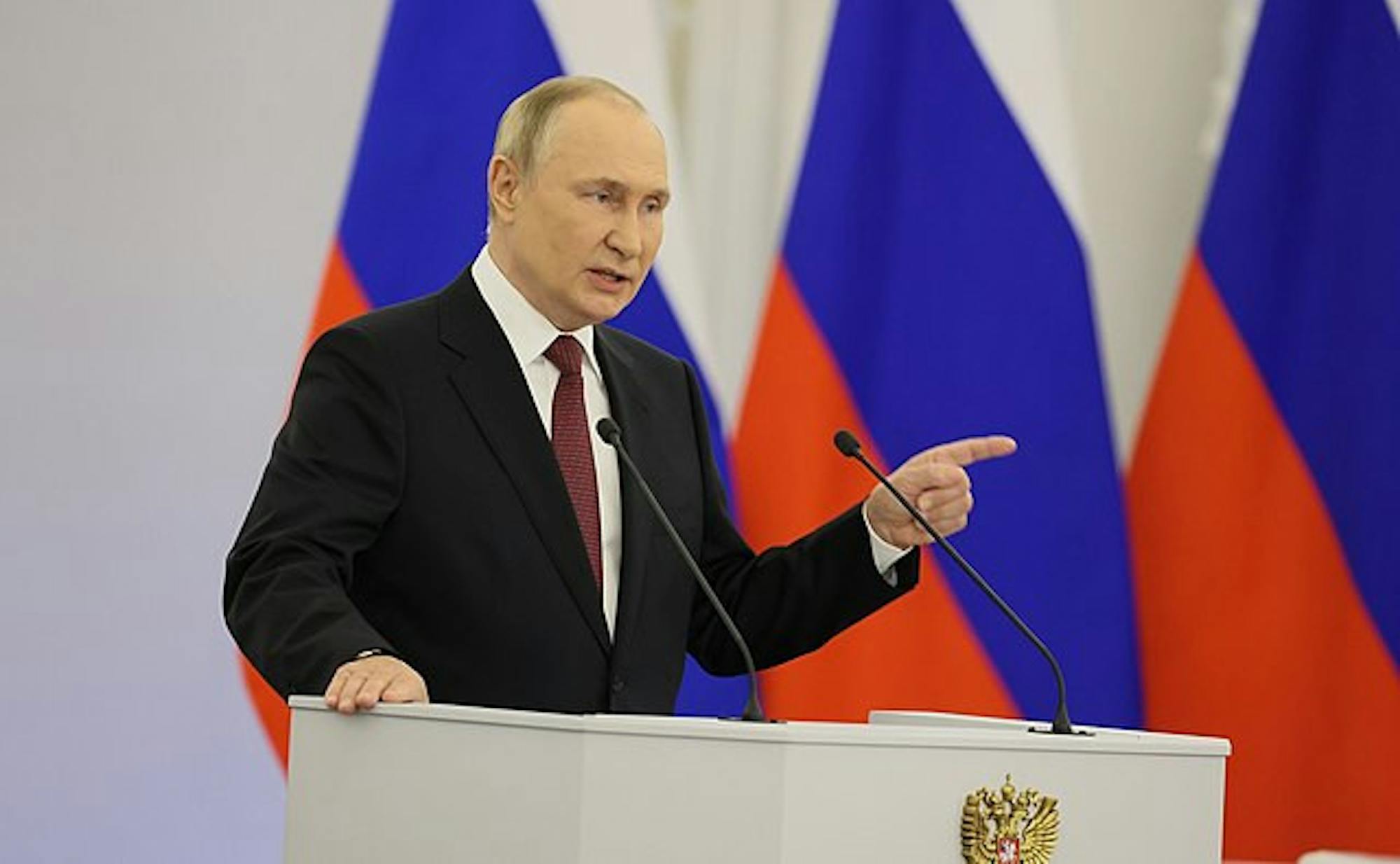Fans of the 1983 blockbuster “WarGames” will likely recall the game-turned-reality threat of “Global Thermonuclear War.” I do not in any way look forward to nuclear war, yet, in today’s current international climate, we are advancing dangerously close to such a case. It is evident from recent rhetoric and conflicts in the Russia-Ukraine War that Russian President Vladimir Putin could likely detonate a nuclear weapon, but this fact seems to be largely ignored by mainstream media.
A look at international news will quickly update you on the status of the ongoing conflict. Despite its military’s size and funding disadvantage, Ukraine has been able to defend itself and, at some points, counterattack Russia. Because of the unprecedented trajectory of the war, Russia finds itself in a dire situation — exactly the condition in which one would consider using weapons of mass destruction. A desperate Putin, surrounded by a team of allies and yes-men, seems closer than ever to deploying such a weapon.
Recent policies have shown that Russia has not taken the usage of nuclear weapons off the table. In fact, it has effectively done the opposite. Recently, Russia elected to postpone nuclear arms control talks with the United States, leaving their future plans ambiguous. Russiaalso plans to increase its missile capability whilst also building new missile systems, potentially gearing up for the usage of nuclear weapons. Putin has also declared captured Ukraine territory under Russia’s “nuclear umbrella.” A nuclear power’s extension of its “umbrella” over a particular region means that power in question will defend that area if it is attacked, relying on nuclear deterrence to caution external forces from intervening. While this is by no means precluding countries from providing aid to Ukraine, it will certainly force countries like the United States to toe the line carefully.
The possibility that a nuclear weapon may be utilized by Russia has United States intelligence deeply concerned, so much so that CIA Director William Burns issued a cautionary message to Sergei Naryshkin, Russia’s foreign intelligence service head. This was the first in-person contact between leaders from the United States and Russia since the February invasion. President Joe Biden has even stated that the world is at the highest risk of “Armageddon” since the Cuban missile crisis.
It is not only the United States that is concerned; other important actors in the international system are considering nuclear fallout with greater severity than ever. Western countries have already designed plans targeted at mitigating panic at home in the event of a detonation.
Despite the wide-reaching and devastating physical impacts of an atomic bomb, the most damaging outcome would occur after the bomb detonates. The deployment of a nuclear weapon, which hasn’t happened since World War II, would result in an impossible scenario for the United States and NATO nations. The United States would have to decide to either punish Russia in kind, thus escalating the risk of global nuclear war, or accept damages and pursue peace talks. Arguably, the latter is more treacherous than simply retaliating because it sets a precedent that the usage of nuclear weapons will not be punished, virtually guaranteeing that a country will not hesitate to use such a weapon again.
The best way to respond in such a situation would be a full-scale conventional engagement by NATO forces. This solid response would instantly punish Russia, while also taking care to avoid playing chicken with nuclear doomsday. Should Russia continue to detonate nuclear weapons, NATO will face a more difficult choice that likely will involve a nuclear-driven response. However, the conventional land, sea and air conflicts would demonstrate to Russia that it has violated an international taboo.
Still, hope does remain that Russia will not use nuclear weapons. Should a bomb be used, Russia will become a pariah in the international system, dealing irreconcilable damage to its trade with other countries. Putin must also know that some form of counterattack will arise in response, further crippling his nation. From an exterior point of view, the risks seem too great for Russia to chance.
In the movie “WarGames,” nuclear war is thankfully avoided. Similarly, such a terrifying prospect could be avoided today if Putin, like the automated nuclear system in the film, realizes that nuclear war is “a strange game. The only winning move is not to play.”






